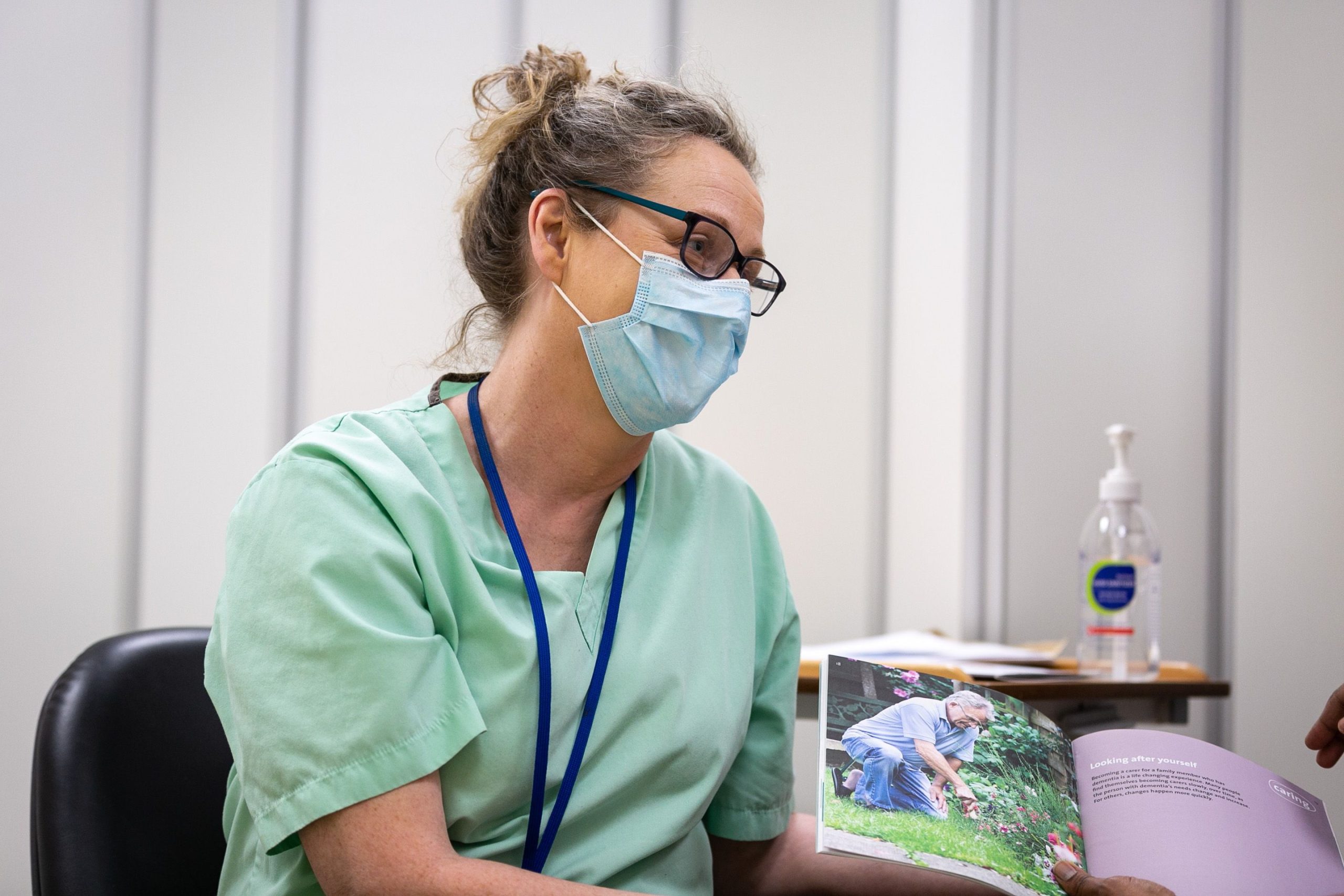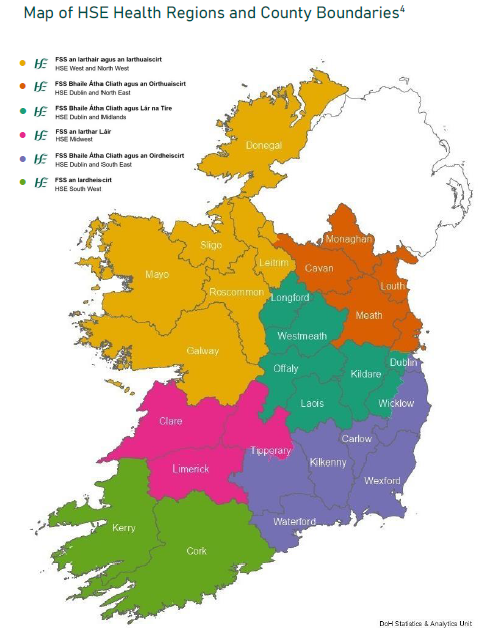The Irish Healthcare System
Ireland operates a mixed public-private healthcare system. The public healthcare system is managed by the Health Service Executive (HSE), which is funded through general taxation. It provides a wide range of services, including hospital care, GP services, and community health services (either free of charge or at a subsidised rate, depending on eligibility criteria such as income, age, or medical need). Ireland’s private healthcare sector enables individuals to opt for private health insurance to access private hospitals and clinics.

Health Service Executive (HSE)
The Health Service Executive (HSE) provides public health and social services to the people of the Republic of Ireland through hospitals and community services across the country. The services delivered within these hospitals include scheduled care, unscheduled care, maternity services, outpatient services, and diagnostic services.
Learn more about the Irish health system and Health Service Executive (HSE).
HSE Health Regions
The HSE is a single organisation with 6 health regions. Each region is responsible for providing both hospital and community care for the people in that area. The regions remain under the governance of the HSE Board and the HSE continues to be responsible for standards and guidelines.
Community health services and hospitals are integrated in each region to provide the following patient services:
- hospitals
- primary care services – like pharmacies and doctors’ surgeries
- community services
- social care services
- public and private providers
- health and social care professionals
- voluntary sector services
Each region has its own budget, leadership team and responsibility for local decision-making. They continue to work towards the Sláintecare objectives. Each of these six regions are led by a Regional Executive Officer (REO) who is accountable and responsible for regional health and social care services. The 6 REOs reports directly to the HSE Chief Executive Officer.
The 6 health regions cover the following healthcare areas:
- HSE Dublin and North East: HSE Cavan Monaghan, HSE Louth Meath, HSE Dublin North City and West, HSE Dublin North County
- HSE Dublin and Midlands: HSE Dublin South City and West, HSE Dublin South West, HSE Kildare West Wicklow, HSE Midlands
- HSE Dublin and South East: HSE Carlow Kilkenny and Tipperary South, HSE Waterford Wexford, HSE Dublin South and Wicklow
- HSE Mid West: HSE Limerick City and Tipperary North, HSE Clare and Limerick County
- HSE South West: HSE Cork North and East, HSE Kerry, HSE Cork South and West
- HSE West and North West: HSE Donegal, HSE Sligo Leitrim, HSE Mayo, HSE Galway Roscommon
(A small portion of west county Cavan continues to come under Sligo and Leitrim for health services.)
Learn more about health regionsStatutory, voluntary, and private hospitals
Individual hospitals within Ireland can be classified as:
- Health Service Executive (HSE) hospitals: hospitals owned and funded by the HSE.
- Voluntary public hospitals: hospitals that may be owned by private bodies (for example, a religious order) but receive state funding. Some voluntary public hospitals are incorporated by charter or statute and run by boards appointed by the Minister for Health.
- Private hospitals: hospitals that receive no state funding.
Model 1, 2, 3, 4 and other public hospitals
Depending on the services provided, public acute hospitals in Ireland are categorised as being a Model 1, 2, 3, or 4.
- Model 1 hospitals are community hospitals and do not provide surgical services.
- Model 2 hospitals admit low-acuity patients and typically have a minor injuries unit and carry out day care surgery.
- Model 3 hospitals provide both elective and general surgical services and admit undifferentiated medical and surgical patients. The hospital will have a category 1 or 2 ICU and may have an HDU. This hospital will have an AMAU. There will be an ED on-site and there may be a clinical decision unit (CDU) on-site as part of the ED service. There will be bi-directional flow of critical care patients between hospital Models 3 and 4.
- Model 4 hospitals are generally located in the larger metropolitan areas. These hospitals admit undifferentiated medical and surgical patients and take referrals from other hospitals, including tertiary referred patients. They provide complex specialist care and have a category 3 or 3S on-site ICU. There will be an AMU present, which is open on a continuous basis. There will be an ED, including a CDU, on-site.
Other public hospitals provide care to a particular cohort of patients or one specialism:
- Maternity
- Children (paediatrics)
- Orthopaedic (musculoskeletal)
- Eye and ear (ophthalmology/ear, nose, and throat (ENT))
- Cancer (radiation oncology)
- Rehabilitation
